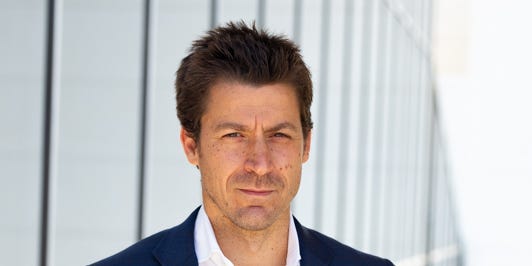- Most VC firms carefully guard their returns as if they were state secrets.
- But Dovi Frances, the founding partner of Group 11, thinks VCs should be more open.
- Frances shared his returns with Insider, which showed more than $1 billion of paper gains.
If you want to know whether a venture fund is making money from its investments in tech startups, good luck. Most venture-capital firms carefully guard their returns on their investments as if they were state secrets. Unlike many other financial institutions, VCs are not required to open their books.
“I do think it has been mostly cultural as to why VCs haven’t shared more nonconfidential performance information publicly,” said Beezer Clarkson, who leads the venture strategy at Sapphire Partners and is the creator of the website OpenLP. “Historically the venture industry has been quite opaque.”
But Dovi Frances, the founding partner of Group 11, a financial-technology-focused venture firm in Los Angeles, thinks VCs should show more of their cards, and he is happy to take the lead.
“There are almost 3,000 players in the venture-capital industry, and almost none of them are transparent,” Frances said.
“I think it’s good to be transparent, he said, adding: “We’re not a Sequoia or Andreeseen yet.” Frances was mentioning two of the most storied venture firms, which have been investing for decades. He believes that transparency is a way to set his firm apart from the competitors, he said.
Frances shared his returns with Insider, which showed more than $1 billion of unrealized gains and strong returns over his five funds.
For instance, thanks to early bets on Sunbit, EquityBee, Papaya Global, and Tipalti, 2019’s Fund IV has returned a 123% gross internal rate of return, which measures the annualized rate of return for a given investment. That puts it in the top quartile and well above the 46% median return, according to Cambridge Associates. (IRR tends to be higher during the early years of a fund and flatten over time.)
Fund IV’s total value paid in, which measures what a fund has produced for investors relative to the amount of money contributed, was 2.479, also in top quartile and well above the 2019 median.
Group 11
Frances says the first thing he does when he meets with founders is show them his past performance, which he thinks is a good indicator of future success in venture.
Frances, who believes in intuition and eschews group decision-making, founded Group 11 in 2012 after a career in financial services and remains its only general partner. He was born in Israel and spends about six weeks a year there. Seventy percent of his portfolio has either Israeli founders or some presence in the country.
Frances is critical of not only his fellow VCs’ lack of transparency but also their investment choices. He dismisses cryptocurrencies as a passing fad and says valuations in many companies have gotten overheated because of “financial engineering.” He said half of the 1,346 unicorns — startups valued at more than $1 billion — were fake.
“The real ones will become massive companies,” Frances said. “The fake one will die of violent death.”
Naturally, Frances puts the seven unicorns in his portfolio in the first category. They are HomeLight (which Group 11 was the first investor in), Sunbit (it was the first investor and led the seed and most recent Series D round), Tipalti (it led the Series A funding round), TripActions, Papaya Global, Next Insurance, and Addepar.
Frances is adamant that the market downturn that is likely to bring a wave of pain for many VCs has spared his portfolio.
“When companies are well capitalized and have remarkable market opportunity, they don’t respond to the hiccups that we’re seeing in the public market,” Frances said. “But definitely certain companies, if they were public companies, would be subject to pretty significant markdowns. That’s the benefit of the private market.”
Clarkson of OpenLP praises Frances’ openness but cautions about reading too much into paper gains since the only true measure of venture performance can take over a decade to show up: by selling a company or taking it public.
“Venture-fund returns take many years to go from paper returns to distributed capital, so reading too much into interim marks can also be misleading both on the positive and the not so positive side, which, I think, has also contributed to investors not wanting to share publicly,” Clarkson said.
Frances started raising a sixth fund in February and said he’s about halfway to his $150 million target.
“It’s not a fun environment to raise in, but if anyone can do it, it’s a top-performing manager,” Frances said.
Credit: Source link


Comments are closed.